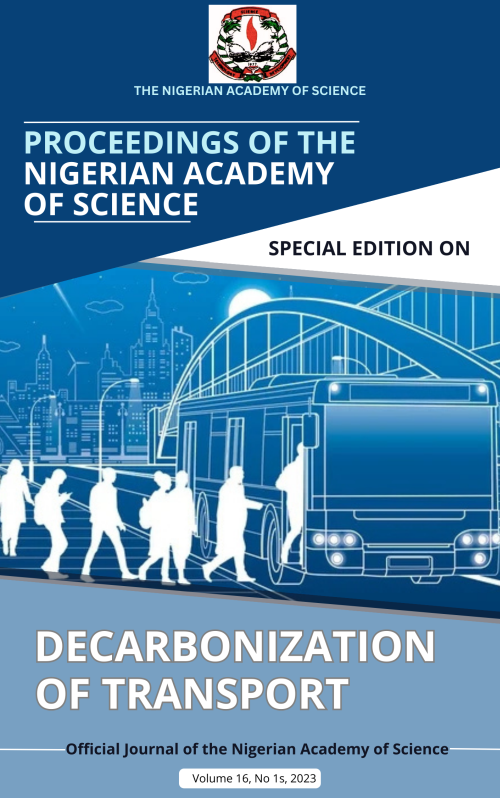Main Article Content
A comprehensive assessment of transportation emissions in Nigeria: Trends, drivers, and impacts
Abstract
This study presents an in-depth investigation into the complex dynamics surrounding transportation emissions in Nigeria against the backdrop of rapid urbanization, population growth, and economic development. Through an extensive analysis of historical trends and recent developments, the article elucidates the escalating challenges posed by emissions. Examining the drivers of transportation emissions, including population growth, economic development, and fuel choices, the study underscores the significant correlation between economic growth and emissions while scrutinizing their environmental and public health ramifications. It also explores the prevalent use of fuels in Nigeria's transportation sector, highlighting the imperative of transitioning to cleaner energy sources and leveraging technological innovations for emission reduction and sustainability. Evaluation of existing policy frameworks and regulatory mechanisms offers insights into their efficacy in emission mitigation, along with emphasizing Nigeria's commitments under international agreements like the Paris Agreement and Sustainable Development Goals. The socioeconomic impacts of transportation emissions, encompassing public health costs, economic losses from traffic congestion, and broader economic implications, are scrutinized. The study concludes with a compelling call to action for immediate policy reforms, sustainable transportation solutions, and international collaboration. As the world grapples with climate change and environmental degradation, this comprehensive assessment aims to inform policymakers, researchers, and stakeholders, serving as a crucial resource for charting a sustainable course for Nigeria's transportation sector.






